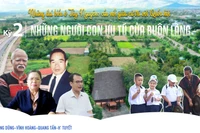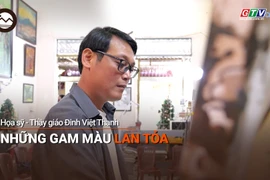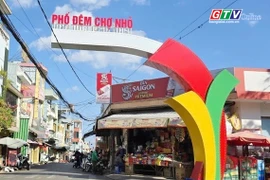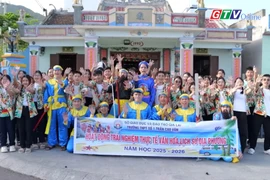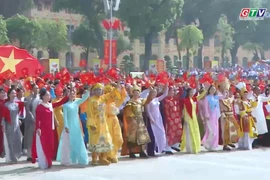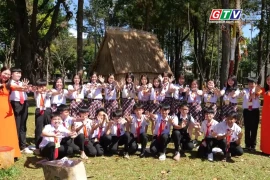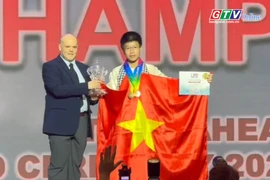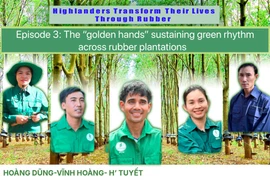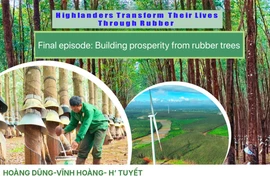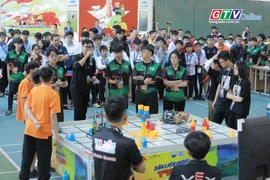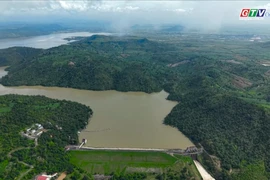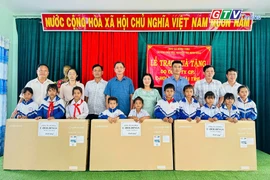Despite holding significant responsibilities at the local level, National Assembly deputies always make time to return to their communities, listening to the thoughts and aspirations of the people. From there, they promptly submit recommendations to the National Assembly and the Government, helping to shape policies and guidelines tailored to local needs.
Although he has passed on to Atau (the afterlife), the name of Sô Lây Tăng remains deeply etched in the hearts of the people of Đắk Kroong commune, Đắk Glei district, former Kon Tum province (now Đắk Môn commune, Quảng Ngãi province). Even while serving as Provincial Party Secretary and as a National Assembly deputy for three consecutive terms (VIII, IX, X), he always stayed close to the people, returning to the villages whenever he had the chance.
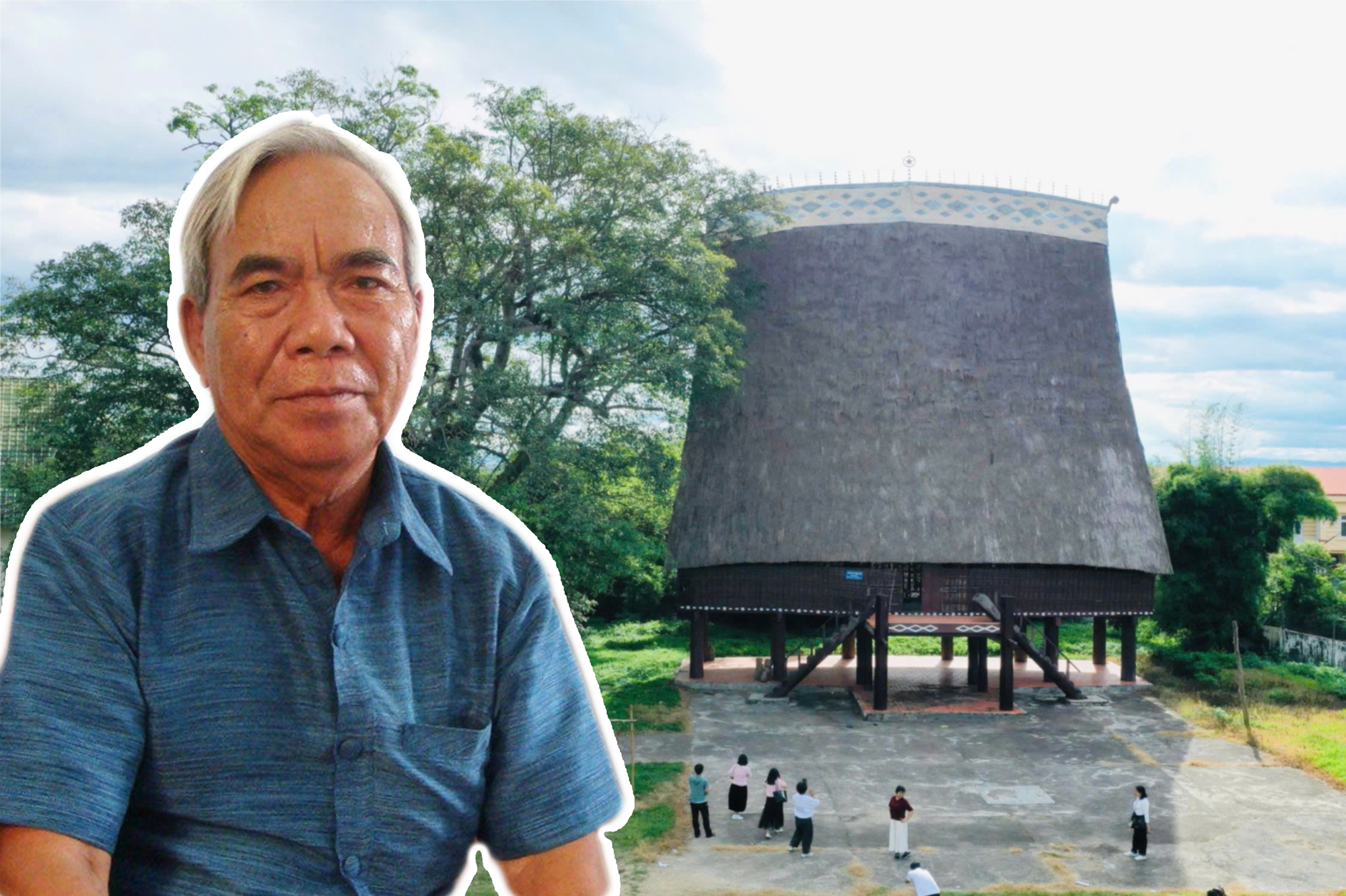
National Assembly deputy for three consecutive terms (VIII, IX, X).
Speaking with us, Ms. Y Thanh, Secretary of the Đắk Môn Commune Party Committee, shared: “We are always proud that this land gave birth to Sô Lây Tăng, not only a Provincial Party Secretary but also an exemplary National Assembly deputy for our villages. We still remember the image of Mr. Sô Lây Tăng celebrating through the night with us over jars of can wine in remote villages, joining in folk songs and xoang dances, and sleeping together with village elders in the communal house.”
Every time he visited the grassroots, Sô Lây Tăng would bring along some medicine and a few simple gifts for the villagers. But the story that many remember most is when he gave the warm coat he was wearing to a poor villager. On a bitterly cold winter day in Đăk Vớt village, seeing an elderly man with nothing but a loincloth, Sô Lây Tăng immediately took off his own coat and gave it to the man for warmth.
Many National Assembly deputies from ethnic minorities in the Central Highlands were born and raised in the villages, growing up in the forests, educated and trained by the Party. Regardless of their positions, they always remained deeply concerned about village and commune affairs.
In many conversations with us, Hà Sơn Nhin—former member of the Party Central Committee, former Secretary of the Gia Lai Provincial Party Committee, and National Assembly deputy for the XI, XII, and XIII terms—remarked: As a National Assembly deputy elected by the people, one must seize every opportunity to meet and listen to the people’s opinions. Before and after each session, delegations meet with voters to record their feedback, which is then discussed and submitted to relevant authorities.
As a National Assembly deputy for four consecutive terms and Chairman of the National Assembly’s Council for Ethnic Affairs, Ksor Phước always prioritized staying close to the people.
“I always tell my colleagues when we go to the grassroots: don’t criticize, just listen—listen to understand the people’s lives. As elected representatives, we must be hands-on, find out why people’s lives are still difficult, and recommend what mechanisms and policies are needed to improve their lives,” Phước shared.
In a conversation with officials from the electricity sector, former Kon Tum Provincial Party Secretary Sô Lây Tăng once joked: “My province has 52% of households with ‘black-and-white TVs’.” He then explained, “Because there’s no electricity, people only ‘use’ that kind of TV... That’s why unplanned births keep happening.” Everyone laughed, but the message about their responsibility to Kon Tum was clear.
Many recall that Sô Lây Tăng was among the most active advocates for the construction of the Ia Ly hydropower plant and the hydropower system on the Sê San River, at a time when there was much debate about the Sê San project and the 500kV transmission line.
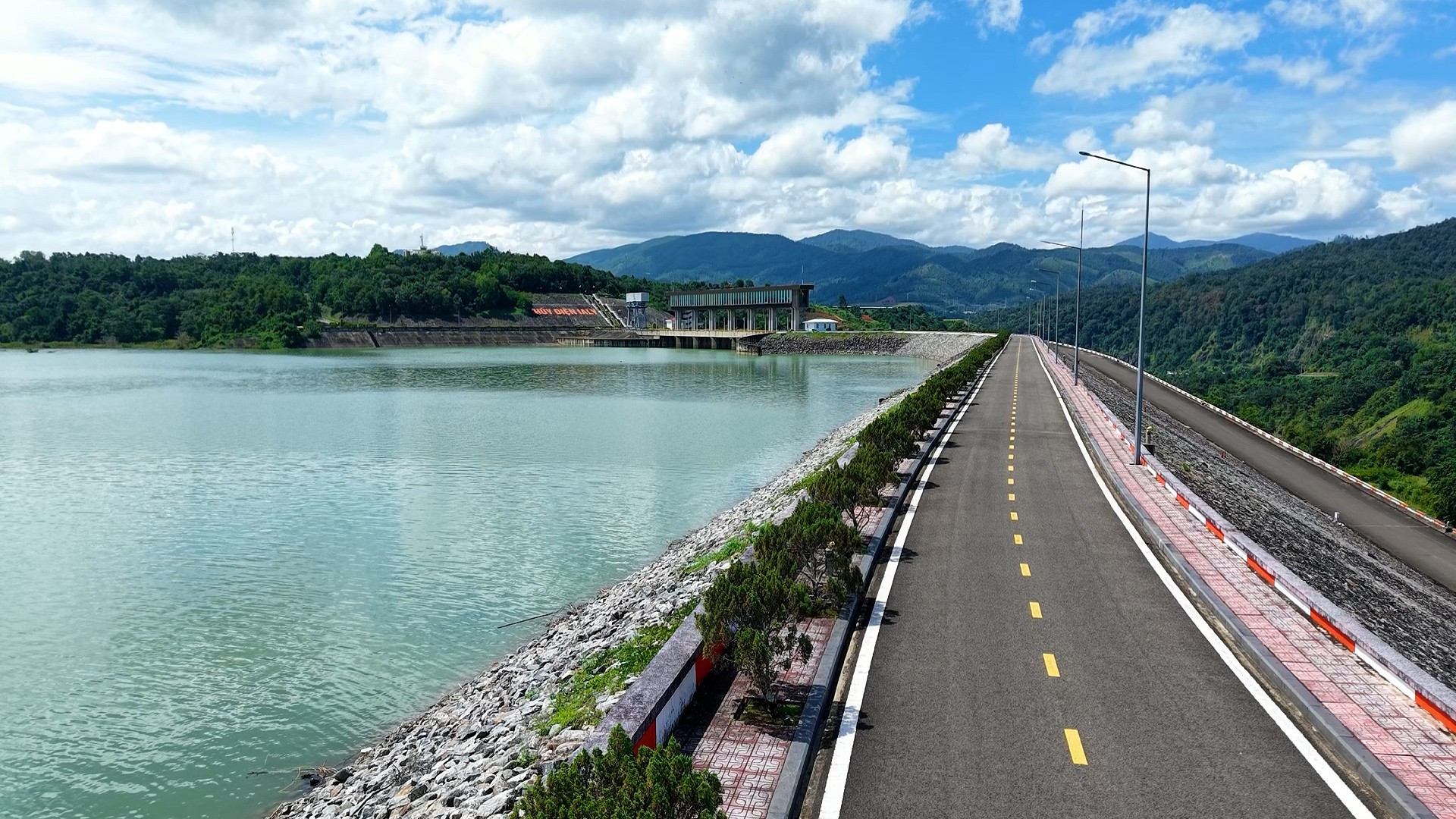
Reflecting on Sô Lây Tăng, Ms. Y Vêng, former Secretary of the Kon Tum Provincial Party Committee and three-term National Assembly deputy, shared: While in office, comrade Sô Lây Tăng was a strong supporter of building the Dung Quất oil refinery.
In National Assembly forums and working sessions, he always emphasized: The North and South have major factories; the Central region also needs a comparable facility to drive socio-economic development and create jobs for local people. Based on this perspective, National Assembly deputies gave their full support to the Dung Quất refinery project.
When the State launched the Ia Ly hydropower project—one of the three largest in the country at the time—thousands of households, mostly Jrai and Bahnar ethnic minorities, had to leave their ancestral lands. This raised many sensitive issues: compensation, site clearance, and ensuring livelihoods and stability for those resettled around the reservoir.
As head of the Kon Tum National Assembly delegation, Sô Lây Tăng participated in numerous meetings between local authorities, the Government, the Ministry of Energy (now the Ministry of Industry and Trade), and Vietnam Electricity (EVN) to discuss compensation and resettlement policies.
His principle of “detailed statistics, fair compensation, no unresolved complaints” served as a reminder to all levels and sectors to do things right, do them fully, and do them in advance—avoiding the situation where problems are only addressed after construction begins.
In the National Assembly, he candidly conveyed the wishes of voters, urging ministries and agencies to respect the voices of people in project areas. He once said: “Mass mobilization isn’t just about persuading people—it’s about protecting their legitimate rights. If the people trust you, they’ll listen to whatever you say.”
Similarly, in those meetings, Ksor Phước also emphasized: “Ia Ly hydropower is a major national project and a source of pride for the Central Highlands, but we must remember that it also meant thousands of households had to leave their ancestral lands. We must ensure that they see this not as a loss, but as the beginning of a better life.”
Thanks to the determination of Sô Lây Tăng, Ksor Phước, and the National Assembly delegations of Gia Lai and Kon Tum, the monitoring, recommendations, and compensation and resettlement work for the Ia Ly hydropower project were carried out more thoroughly and systematically than was typical at the time. The Government and EVN agreed to increase compensation levels and provided land for production and housing, as well as built resettlement homes for relocated residents.
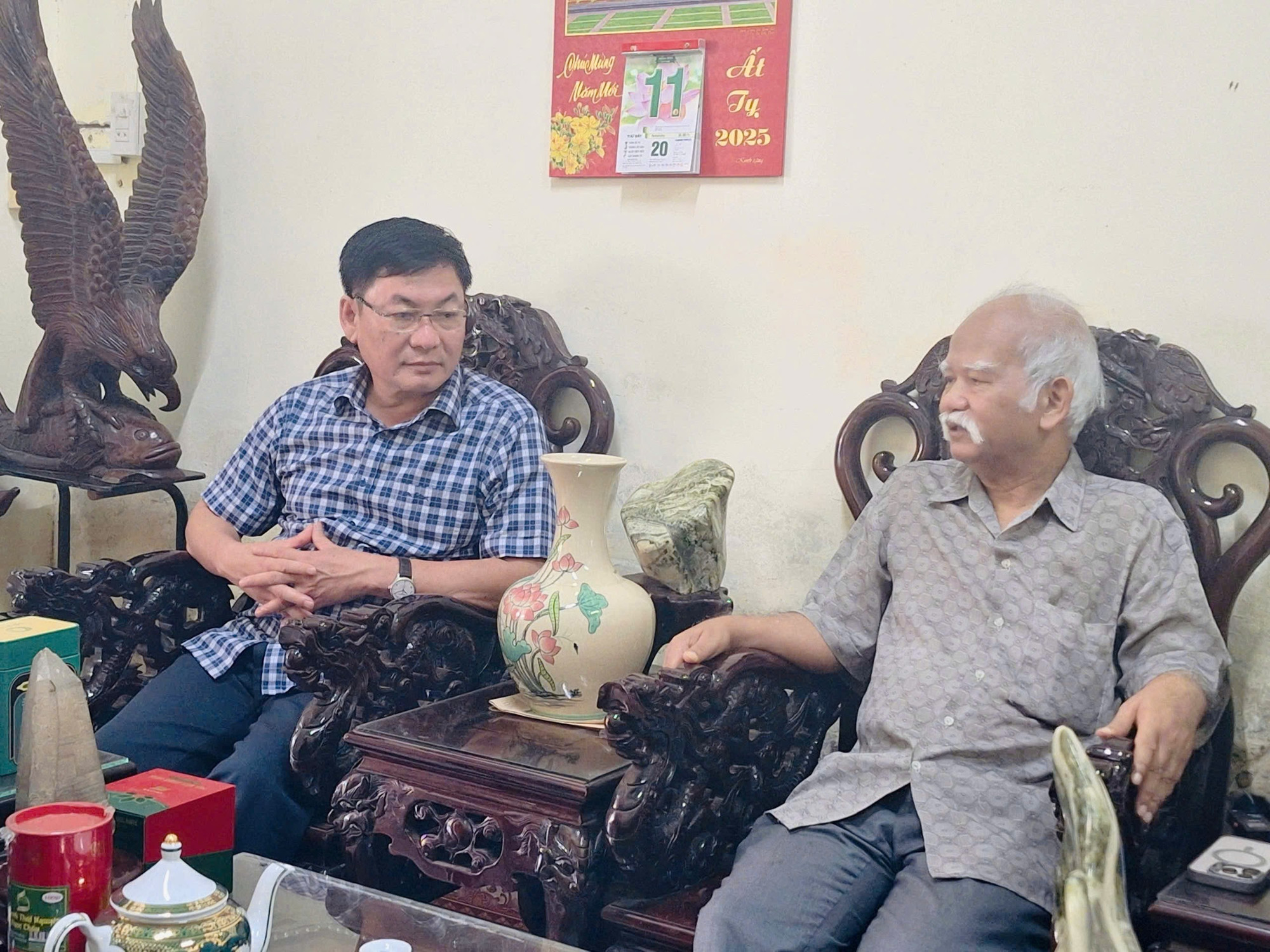
Thousands of Jrai and Bahnar households in Ia Kreng, Ia Ly, Ia Mơ Nông, Ia Phí communes (Chư Păh district, former Gia Lai province) and the border area with Sa Thầy district (former Kon Tum) had to leave their ancestral lands for the project. This was not an easy decision, as for the Jrai and Bahnar, their land is not only a means of livelihood but also a repository of memory and spirituality.
However, upon moving to new locations, people faced countless difficulties: limited farmland, incomplete roads, and harsh climate. But thanks to the determined efforts of National Assembly deputies and local authorities, resettlement and agricultural programs were implemented in a coordinated manner: new model houses, electricity, schools, health stations; land allocation, support for seeds and livestock, technical guidance for coffee, pepper, and rubber cultivation; and investment in transport, irrigation, and electricity infrastructure, enabling people to gradually stabilize their lives.
After more than 30 years in their new homes, residents’ lives have changed dramatically. In Ia Kreng, Ia Ly, Ia Mơ Nông and other communes, lush coffee and pepper gardens now stretch as far as the eye can see, generating hundreds of millions of dong in income each year.
Recalling the early days in the new settlement, Rơ Châm Kok (Kép 2 village, Ia Ly commune, Gia Lai province) said: “We were used to life on the land of our ancestors, so when the State encouraged us to move for the project, we were very anxious. But when officials explained the economic benefits and promised the best possible infrastructure in the new place, my family and the whole village agreed.”
Mr. Kok shared: “Electricity, roads, schools, and clinics were gradually built by the State, and we were given farmland, support for seeds and livestock, and technical guidance to develop our economy, especially after switching to coffee and rubber. Thanks to this, both the material and spiritual lives of the people began to stabilize, and our children could go to school.”
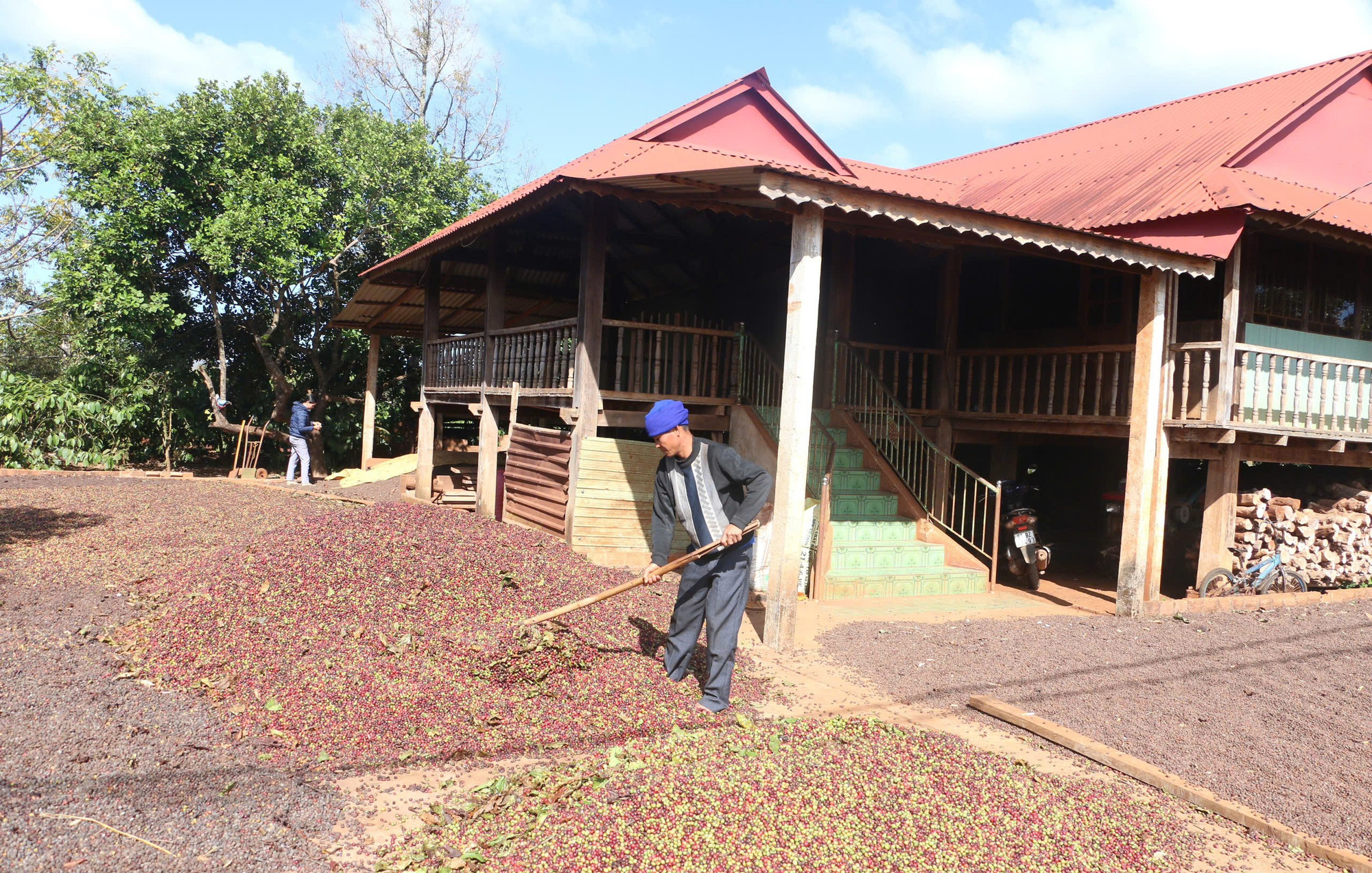
Thanks to hard work and comprehensive State support, Mr. Kok’s family has built a dream home on their new land. With over 2 hectares of coffee in harvest and more than 3 hectares of dổi, bời lời, and pepper, after deducting investment costs, Mr. Kok earns about 1 billion VND per year.

